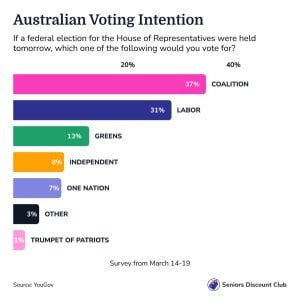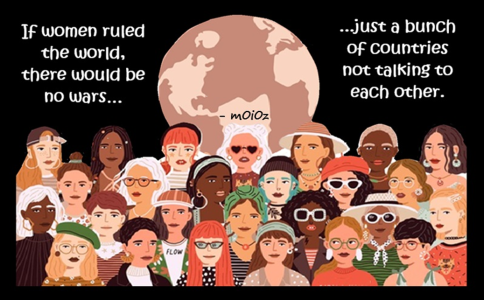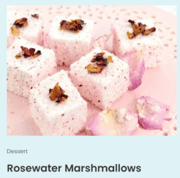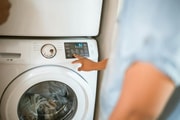‘It is a very close race’: New poll reveals a shocking election twist
By
Maan
- Replies 78
Election season is heating up, and the latest poll numbers suggest a race that’s tighter than ever.
As political leaders gear up for a critical showdown, shifting voter sentiments and key approval ratings could play a decisive role in the outcome.
With the election date announcement imminent, the stakes have never been higher.
With the federal election fast approaching, the latest YouGov poll revealed a dramatic shift in voter sentiment, placing Labor and the Coalition neck and neck at 50-50 on a two-party preferred basis.
This marks a change from the previous poll, where Labor had a slight edge at 51 to 49 per cent, bolstered by its response to ex-tropical cyclone Alfred and support for Ukraine.
Despite the Coalition gaining ground, Prime Minister Anthony Albanese remained the preferred leader, leading Opposition Leader Peter Dutton 45 per cent to 40 per cent.
Paul Smith, YouGov’s director of public data, noted that Albanese’s personal approval could be a decisive factor in such a tight contest.
‘It is a very close race but the prime minister has now consolidated his lead as preferred leader and that is significant,’ he said.
The poll showed Labor’s primary vote remained steady at 31 per cent, while the Coalition rose by one point to 37 per cent.
The Greens and One Nation each dropped slightly, falling to 13 per cent and 7 per cent, respectively, while support for independents declined to 8 per cent.
Clive Palmer’s Trumpet of Patriots party remained at just 1 per cent, despite another round of heavy advertising.
Dutton saw an improvement in his satisfaction ratings, with 42 per cent of respondents approving of his performance and 47 per cent disapproving, giving him a net satisfaction of minus five per cent.
Albanese’s net satisfaction dropped to minus nine per cent, with 41 per cent of respondents expressing approval and 50 per cent dissatisfied with his leadership.
The polling results came just as Labor prepared to deliver the federal Budget, expected to show a deficit following consecutive surpluses.
This financial outlook led to speculation that the government might bypass the Budget altogether and go straight to an election.
However, the impact of Cyclone Alfred in Queensland and northern New South Wales delayed Albanese’s plans to visit the governor-general.
With the election required to be held by 17 May, Albanese was expected to call the poll in the days following the Budget.
The YouGov survey, conducted between 14 and 18 March, polled 1,500 Australians and had a margin of error of 3.4 per cent.
In a previous story, we explored Clive Palmer’s latest political push as he ramps up efforts ahead of the election.
With his Trumpet of Patriots party polling at just 1 per cent despite a costly advertising campaign, questions remain about its impact on the race.
Read more to see how Palmer’s bold strategy could shake up the election landscape.

With the election shaping up to be a tight contest, which issue do you think will sway voters the most? Let us know your thoughts in the comments.
As political leaders gear up for a critical showdown, shifting voter sentiments and key approval ratings could play a decisive role in the outcome.
With the election date announcement imminent, the stakes have never been higher.
With the federal election fast approaching, the latest YouGov poll revealed a dramatic shift in voter sentiment, placing Labor and the Coalition neck and neck at 50-50 on a two-party preferred basis.
This marks a change from the previous poll, where Labor had a slight edge at 51 to 49 per cent, bolstered by its response to ex-tropical cyclone Alfred and support for Ukraine.
Despite the Coalition gaining ground, Prime Minister Anthony Albanese remained the preferred leader, leading Opposition Leader Peter Dutton 45 per cent to 40 per cent.
Paul Smith, YouGov’s director of public data, noted that Albanese’s personal approval could be a decisive factor in such a tight contest.
‘It is a very close race but the prime minister has now consolidated his lead as preferred leader and that is significant,’ he said.
The poll showed Labor’s primary vote remained steady at 31 per cent, while the Coalition rose by one point to 37 per cent.
The Greens and One Nation each dropped slightly, falling to 13 per cent and 7 per cent, respectively, while support for independents declined to 8 per cent.
Clive Palmer’s Trumpet of Patriots party remained at just 1 per cent, despite another round of heavy advertising.
Dutton saw an improvement in his satisfaction ratings, with 42 per cent of respondents approving of his performance and 47 per cent disapproving, giving him a net satisfaction of minus five per cent.
Albanese’s net satisfaction dropped to minus nine per cent, with 41 per cent of respondents expressing approval and 50 per cent dissatisfied with his leadership.
The polling results came just as Labor prepared to deliver the federal Budget, expected to show a deficit following consecutive surpluses.
This financial outlook led to speculation that the government might bypass the Budget altogether and go straight to an election.
However, the impact of Cyclone Alfred in Queensland and northern New South Wales delayed Albanese’s plans to visit the governor-general.
With the election required to be held by 17 May, Albanese was expected to call the poll in the days following the Budget.
The YouGov survey, conducted between 14 and 18 March, polled 1,500 Australians and had a margin of error of 3.4 per cent.
In a previous story, we explored Clive Palmer’s latest political push as he ramps up efforts ahead of the election.
With his Trumpet of Patriots party polling at just 1 per cent despite a costly advertising campaign, questions remain about its impact on the race.
Read more to see how Palmer’s bold strategy could shake up the election landscape.
Key Takeaways
- The latest YouGov poll showed Labor and the Coalition tied at 50-50 on a two-party preferred basis.
- Anthony Albanese remained the preferred prime minister over Peter Dutton, leading 45 per cent to 40 per cent.
- Labor’s primary vote stayed at 31 per cent, while the Coalition rose to 37 per cent, with minor parties losing support.
- The election must be held by 17 May, with Albanese expected to call it after the federal Budget.
With the election shaping up to be a tight contest, which issue do you think will sway voters the most? Let us know your thoughts in the comments.









